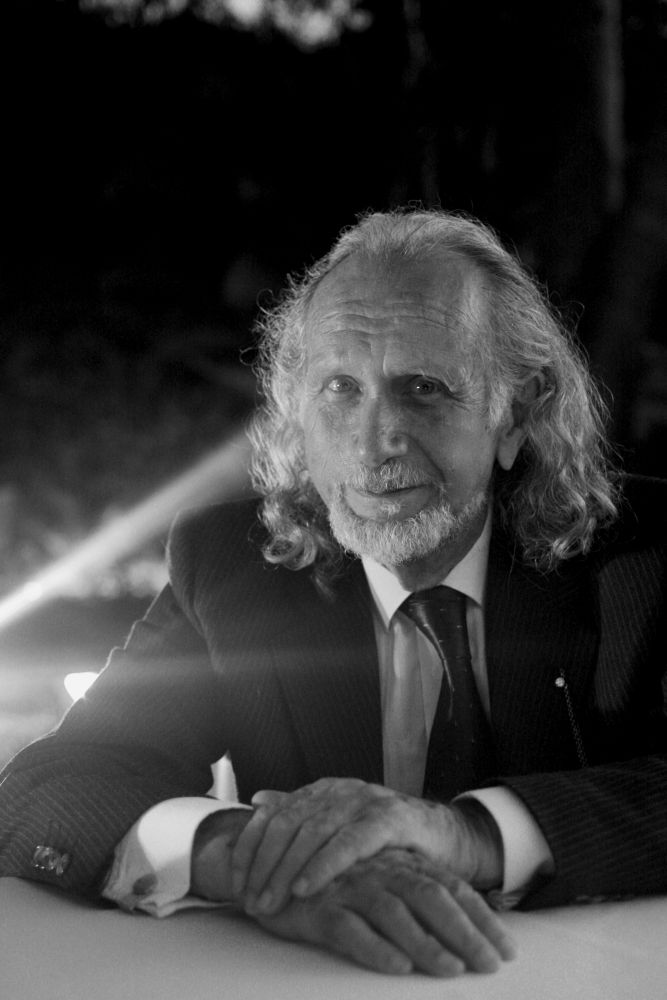LAUREL CANYON—Watching our dapper, silver-haired neighbor out for a leisurely stroll, it’s hard to imagine what lies within. Toma George Maiorescu [my-ya-res-q] is a renowned Romanian author, poet and philosopher. He is both spare and precise with his use of words. His 40 books have been translated into 20 languages. His anthology “The Prince of Metaphor at the Metaphysics’ Court” has just been published in English.
I’ve read poetry, but compared to what Mr. Maiorescu writes, it might as well be “Cat in the Hat.” This is not your Beowulf nor Shakespeare. My first read set me back on my heels. Within his sparely worded Synapses he managed to challenge my assumptions. ”Hmm- that’s an assumption I hold?” How’d he do that?
The material in his Anthology was carefully selected, along with a change in title from the original, “Poet – Between the Courts of Metaphysics and the Cagoule Universe.” Just as in the title, you’re instantly challenged to parse his words. They don’t simply pour over you. The first poetry section, “Poems – Beyond the Seven Rivers” is divided by selected Synapses, one of which reads: “Chaos is the maximum order/of an absolute disorder.”
The final chapter of poems is entitled “The Nostalgia of Detachment from the Shore.”
Always provocative, Maiorescu is most animated about his recent works, which have focused on the revolutionary changes in science and technology. He remarked, “Just think about the new words and concepts that have crept into our lexicon in the last 25 years coupled with their heretofore unimagined discoveries.” His writings ask, what is the relationship between humanity and the “new”? What’s the relationship between the old and the “new”? What should the relationship be? Profound questions.
I was very lucky to get a chance to sit down and talk with him. I asked him what drew him to his subjects. That simple interrogatory let me know I had a lot to learn. He explained that writing always flows from one’s experiences – it’s a combination of observations, emotions and experience coupled with the ability to articulate it with grace and conviction.
“The only blue sky we could see was in my father’s paintings,” Maiorescu’s blue sky quote refers to his early upbringing. He was born in a small town in southwest Romania, originally built by Queen Maria Theresa of the Hapsburg dynasty. As a young boy he remembers the soot spewing from the local steel factory blackening the skies. The village children were sent into the hillside during the summers to get above the black cloud. Cemeteries were also on those hillsides above the town which was nestled along a riverbank; people walked barefooted to “release the static from the body back into the earth.” This is where Maiorescu acquired his love and respect for nature, which is a linchpin for his work.
The bucolic riverbank setting of the small town was contrasted by its industrialization. How do you make sense of the contradiction? Maiorescu says his people were accepting of their fate. In those early days no one traveled, no one brought foreign ideas. Status quo ante may have been acceptable for others, but not for Maiorescu. Clearly these contradictions set Maiorescu on his journey of discovery. In turn his writings throw down the gauntlet, challenging his readers to embark on their own journey.
“The Prince of Metaphor at the Metaphysics’ Court: Anthology of Poetry” is available on amazon.com.






